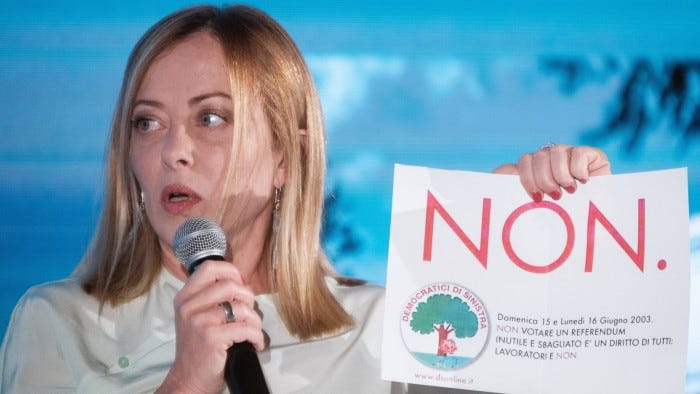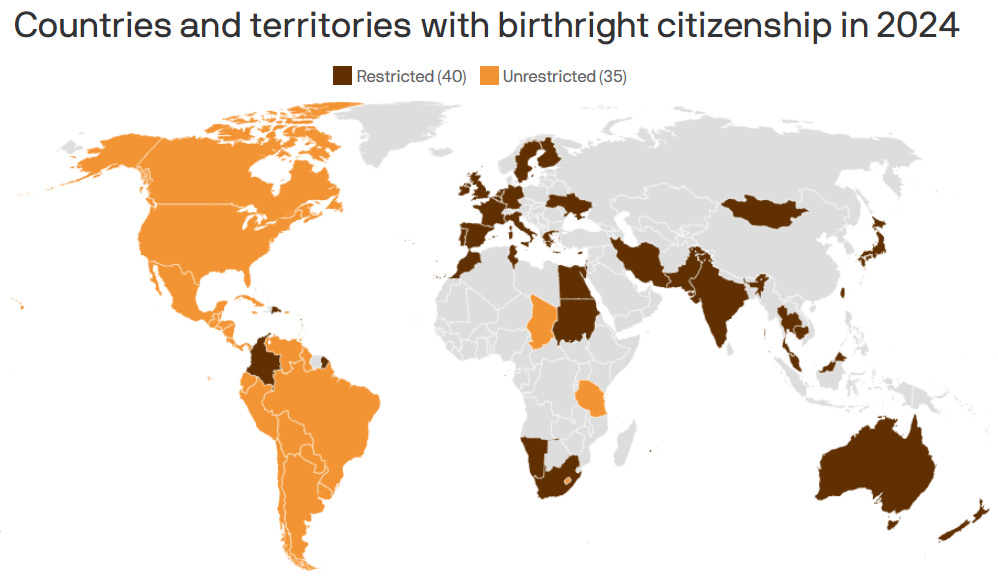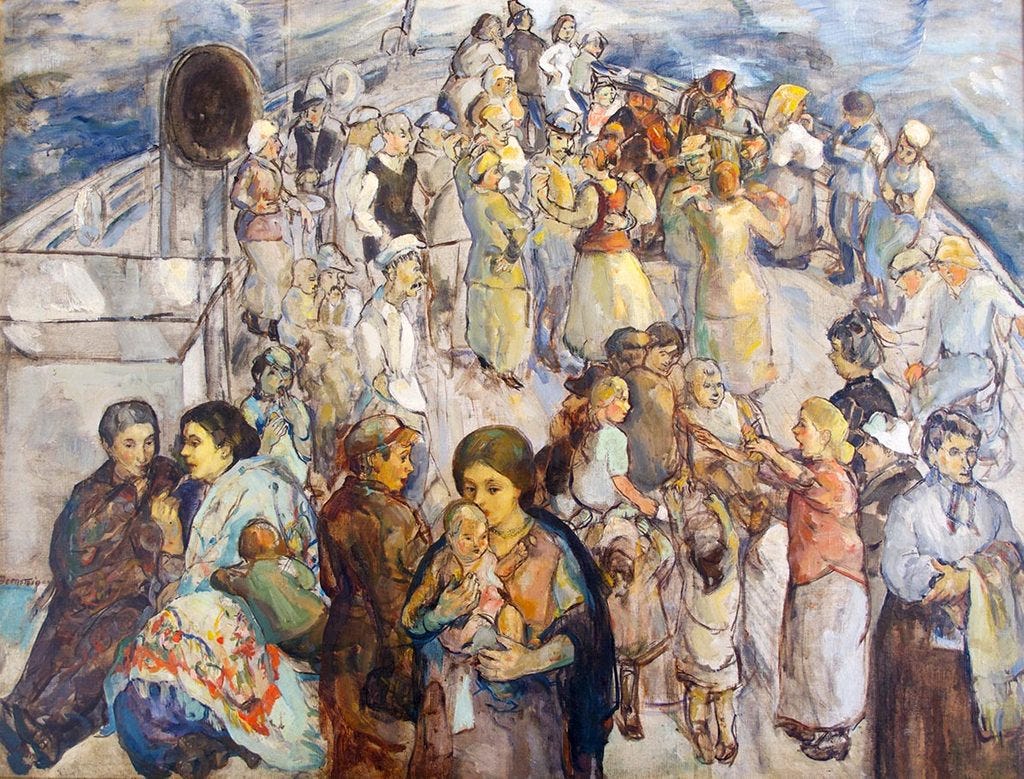Earlier this week, Italy held a referendum that would have halved the time it takes for immigrants to naturalize as citizens.
The vote failed. And the reason might surprise you.
In Italy, a referendum is lawful only if more than 50% of the voting-eligible population participates.
Because of this, those who oppose the policies included in the referendum are better off not voting at all than voting ‘NO’ on the immigration rule change.
Italian Prime Minister Giorgia Meloni chose to go to a polling station but said that she did not vote in the referendum.
Members of her conservative anti-immigration governing coalition circulated internal memos telling each other not to vote in or publicize the referendum.
And according to Politico:
Italian public media and government politicians broadly ignored the referendum, with junior Meloni coalition member Forza Italia posting a picture on X of a swimming pool, sandals and sunglasses, saying “sorry if we didn’t post anything today, we were all at the beach.”
This is all fine and legal, but it illustrates one of the many weird & interesting features of Italian politics.
Italy’s Referendums: Voter Turnout Blues
1974-1995: Eight of nine referendums topped 50% voter participation.
1996-2025: Just four of 34 referendums reached 50% voter participation, with the other 30 being voided.
Enough about Italian politics. Now we can get to the topic of today’s newsletter:
What does it mean to be a citizen?
We should divide this into two questions, although we will focus on the first:
What should qualify someone to become a citizen?
Does being born in a country mean that you have certain rights? And does it also mean that you have duties or responsibilities to your country?
In the U.S., the 14th Amendment grants citizenship to anyone born on American soil.
President Trump has spoken out about his desire to end the practice of birthright citizenship, but that seems unlikely without him & his allies passing a new constitutional amendment.
In countries like Germany and Italy, however, if you’re born to non-citizen residents, you are not guaranteed citizenship yourself.
This puts many people in a difficult position.
A country can be the only home you’ve known, but your lack of citizenship tells you that the country — and its people — don’t see you as a full-fledged resident.
Italy's referendum would have allowed roughly 2.5 million foreign nationals residing legally in Italy to apply for citizenship.
Citizens of a country are members of a defined political community. They have the right to decide how hard or easy it should be to become a citizen.
In Italy and worldwide, we are seeing a political backlash against immigration.
I have many friends who are immigrants, and I believe that immigration makes my country better. America, in particular, was built by immigrants.
I want my country to be welcoming to them. And I believe America will benefit from their hard work and efforts toward a better future.
But we are moving toward a world where people from poor countries and regions increasingly want to migrate to the U.S. and Europe to achieve a better life for themselves and their families — the same motivations that drove my ancestors from Ireland to North America.
This trend could be exacerbated further by climate change and political destabilization in the regions from which people are migrating.
At the same time, many — particularly legal immigrants — feel that there is a certain unfairness that occurs when people immigrate illegally.
Legal immigration is costly and time-consuming, and those who patiently go through that process feel like illegal immigrants are skipping the line.
I have lived in Miami for 5 years and have heard this argument countless times when discussing illegal immigration with legal immigrants.
Political philosopher David Miller, who has written extensively on immigration, asked in a paper: "Is there a human right to immigrate?"
He concludes that there is not, because ultimately the citizens of a state have the right to determine who can & cannot enter.
We are currently seeing the violent remaking of the immigration regime in the U.S., with clashes between pro-immigrant protestors and the National Guard in Los Angeles illustrating the fundamental political conflict occurring around the world today.
On one side, pro-immigrant protestors are speaking up for the humanity of their undocumented brothers & sisters. People they work alongside, are married to, have children with, or feel solidarity with in the face of deportation.
And on the other side, you have citizens & their elected government taking action against illegal immigration that they believe has disadvantaged & endangered American citizens. While the rhetoric & methods they use can be ugly, a government and its people do have the ultimate right to decide who belongs in their country.
No matter which side you take, political conflicts over immigration are clearly raising new questions about citizenship and national identity worldwide.
As borders harden and identities clash, the question remains: what does it mean to belong?
Every immigration debate is a mirror, reflecting not just who we are… but what values we have & who we will become.
















The Immigrants by Thomas Bernstein. 1923 - That were my Greek grandparents from both sides immigrating for just 20km after the re-arrangement of the borders between Greece and Turkey at exactly that date back in 2022 - 2023. Ernest Hemingway wrote about this in: The fall of a city: Refugees, exodus and exile in Ernest Hemingway’s Istanbul/Edirne, 1922
And then my uncle back in the 50ies being an illegal immigrant of just 16years old in Germany and right now in my prefecture thousands of immigrants find temporary residency. I so much and totally agree that our personal values and ethics reflects 100% on how we face immigration. Humanity above all!
I think it's an interesting but not easy question to answer. What is interesting is that the American view on immigration and who gets to be a citizen, seems to be a lot more open than many other countries in the world, which can be surprising to some I would imagine. I admittedly do not know the answer but do know that immigration has long been an issue politicians have said they will address, and yet they haven't...which has led to the current situation where President Trump is addressing the issue...but not in the way some would have preferred.